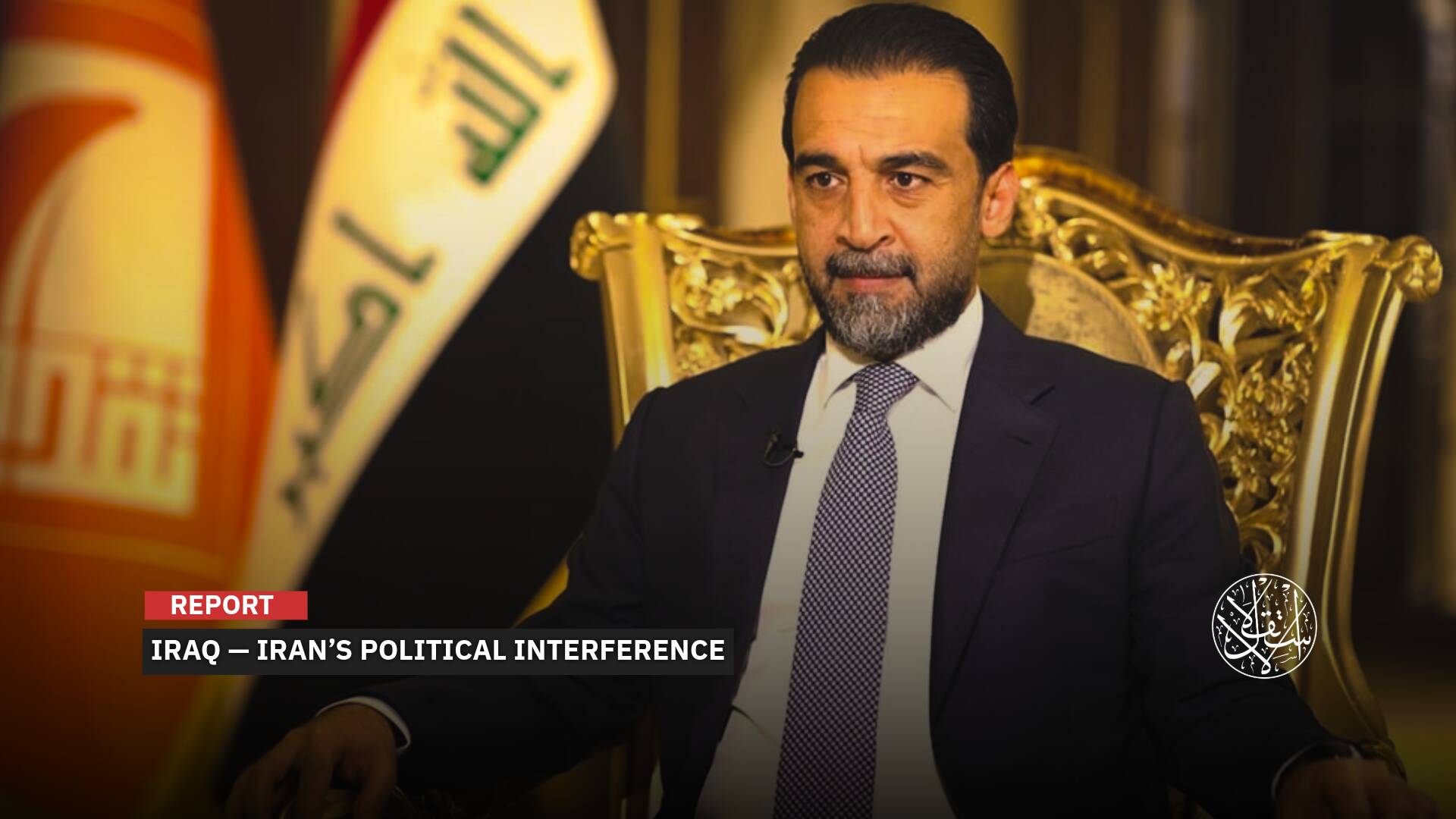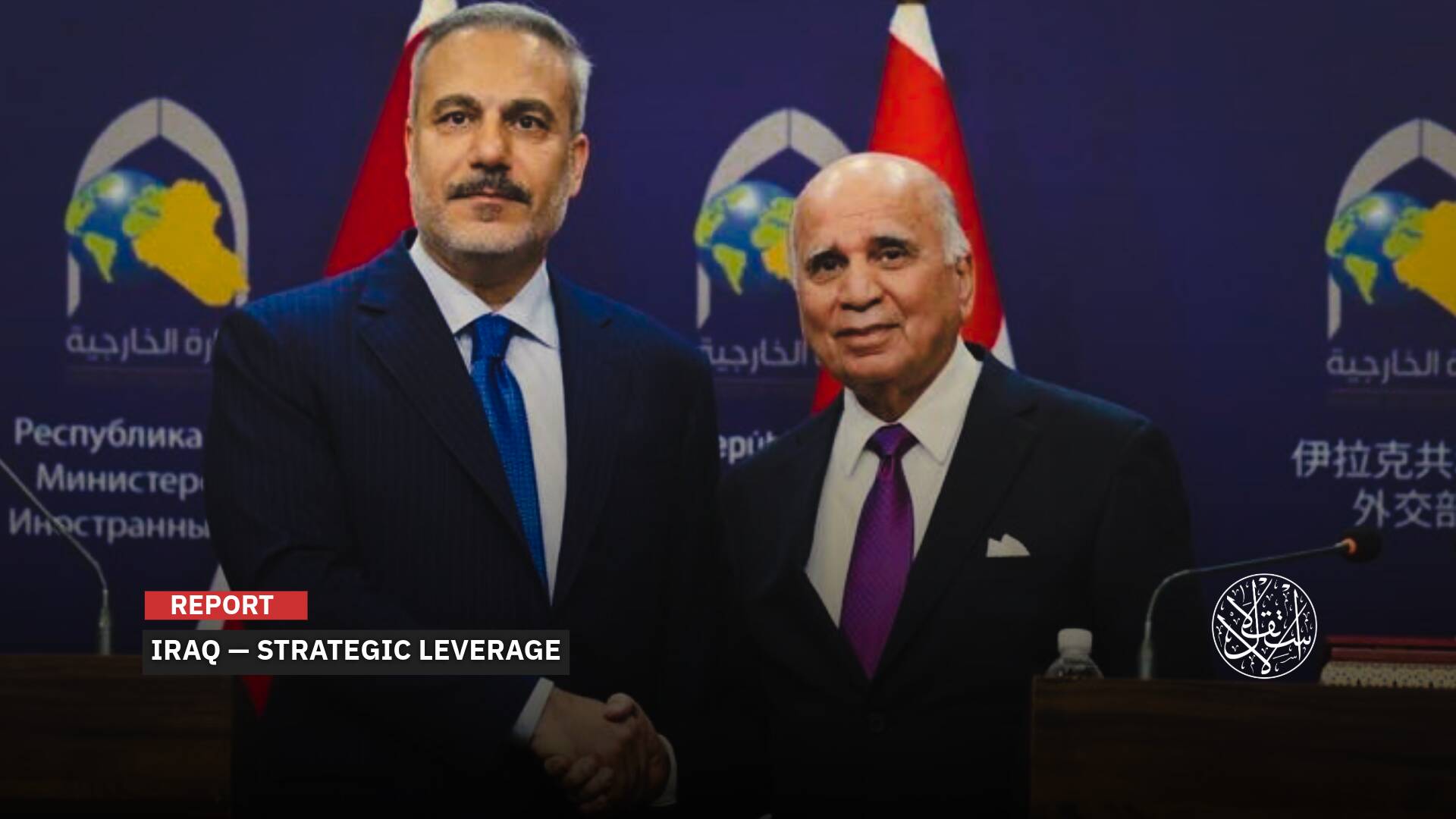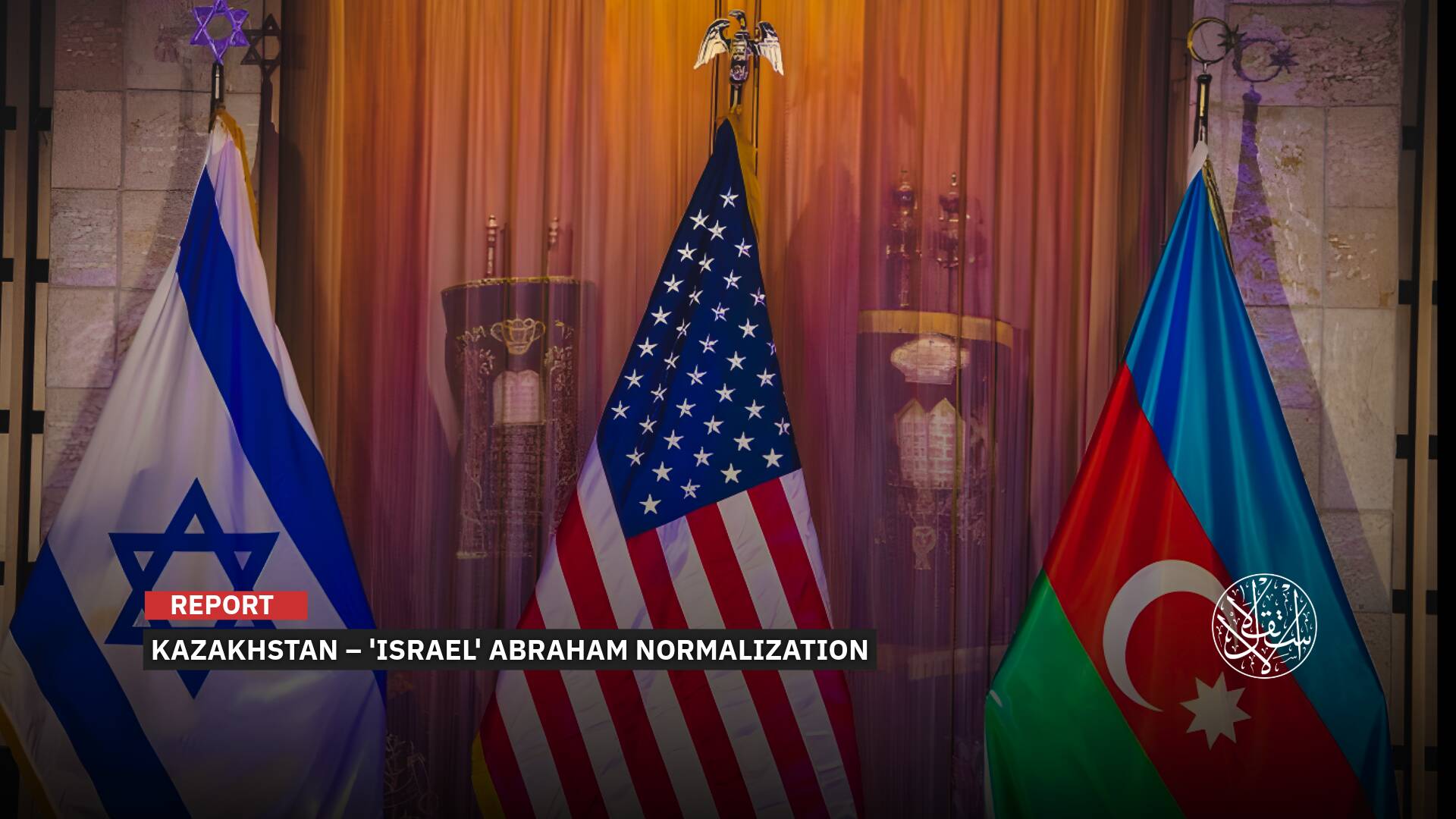Why ‘Egyptian Nationalists’ Remain Loyal to Assad's Regime Despite its Fall

'Egyptian Nationalist' Movement has supported al-Assad since the Syrian revolution's start.
The fall of ousted Syrian president Bashar al-Assad on December 8, 2024, as he fled to Russia and transitional government forces entered Damascus, marked a political earthquake in the region, with its reverberations swiftly reaching Egypt.
The end of the Ba'ath Party’s 61-year rule in Syria came as a shock to Egyptian nationalists, particularly those who had waged a political and media campaign against the Syrian revolution and mourned the collapse of the regime.
Sabahi's Support
In a striking response, Egyptian politician Hamdeen Sabahi was among the first to comment on the fall of al-Assad’s regime, posting on X "Ah, Syria, my beloved [...] a deep stab in the heart of Arabism [...] but Arabism will not die."
Sabahi, a prominent figure in the nationalist movement, previously led the Nasserist Karama Party (The Dignity Party) and, in 2012, founded the Popular Current (a group aligned with nationalist ideals), with which he competed in that year’s presidential election.
Currently serving as the Secretary-General of the Arab Nationalist Congress, Sabahi has been a staunch supporter of Assad.
His support reached its peak in August 2023, when he visited Damascus and met with the ousted president.
The meeting, which included other Arab nationalist figures, was framed as "Standing with Syria against siege, aggression, and occupation," and Sabahi’s visit sparked outrage in both popular and political circles in Egypt.
Former Minister of Manpower and prominent nationalist figure Kamal Abu Aita, who served in the first government formed after Egypt's 2013 military coup, found the fall of Syria and Damascus without any official or popular resistance to be "extremely bizarre."
Speaking at a Nasserist party seminar titled "Syria and the Project to Divide the Arab Homeland," Abu Aita expressed his astonishment at the lack of any Egyptian reaction to Syria's collapse.
Meanwhile, Egyptian media figure and parliamentarian Mostafa Bakry fiercely attacked the Syrian transitional government, accusing it of being backed by the United States and “Israel.”
Bakry, who aligns with both the Sisi regime and the nationalist movement, posted on X "Assad has left Damascus for an unknown destination, terrorists have taken control of the city, and chaos has now begun in Syria, spreading to the rest of the Arab world."
“Wait for Abu Muhammad al-Julani [...] wait for revenge and the signs of civil war [...] wait for the dominance of Zionists and their allies over Syrian decision-making [...] don’t be too joyful over Bashar’s fall.”
Longstanding Support
The Egyptian Nationalist Movement was one of the first to back Bashar al-Assad's regime from the outset of the Syrian revolution.
On February 13, 2013, a delegation led by the General Secretary of the Nasserist Party, Ahmed Hassan, visited al-Assad in Damascus.
At the time, the Syrian regime was carrying out horrific massacres against its own people to suppress the revolution and demands for reform and freedom.
During the visit, Ibrahim Badrawy, head of the Movement of the Egyptian Left, expressed his support for al-Assad, denouncing what he called the savage, barbaric war Syria is enduring.
Remarkably, Egypt was then under the leadership of elected President Mohamed Morsi, who voiced his full support for Syria.
In a famous speech in June 2013, just days before the military coup that ousted him, Morsi declared,"Here we come, Syria."
At that time, Morsi faced fierce opposition from nationalists and Nasserists, with the Nasserist Party's General Secretary, Ahmed Hassan, criticizing Morsi's remarks at the Non-Aligned Movement summit, where he stated that "Bashar al-Assad has lost his legitimacy," pointing out that the president's statements amounted to a call for foreign intervention in Syria.
According to Al-Estiklal, while Morsi sought to halt the bloodshed, which continued for years thereafter, the Syrian Network for Human Rights documented in its 2023 report the deaths of 230,224 Syrian civilians, including 15,272 who died under torture.
Additionally, 154,816 people were forcibly disappeared or detained, and nearly 14 million Syrians were displaced, victims of al-Assad's brutal crackdown on the revolution.
Sending Fighters
The Egyptian Nationalist Movements did not just support al-Assad verbally, but also in action and on the battlefield.
The existence of Egyptian fighters alongside Bashar al-Assad was confirmed by Basil al-Kharrat, the political officer of the Arab National Guard, who was involved in recruiting thousands of Arab fighters to fight alongside the Syrian regime's forces.
In an interview with al-Watan newspaper, al-Kharrat revealed details of the operation, saying they had set up a training camp consisting of two battalions initially made up of 330 fighters from various nationalities, including Egyptians, Palestinians, Tunisians, Lebanese, Yemenis, Jordanians, and Saudis.
“We started rigorous military training,” al-Kharrat said, “because, simply, we are Arab fighters alongside the Syrian army.”
Al-Kharrat added that the number of fighters eventually grew to 1,500, and they lost around 52 martyrs, the first of whom was an Egyptian fighter, known by the nickname Abu Bakr al-Masri, a symbolic choice meant to echo Abu Bakr al-Baghdadi’s nom de guerre.
The Arab National Guard militia, founded in late 2012 under the leadership of Lebanese Asaad Hammoud, also known as al-Hajj Zulfikar al-Amili, is composed of youth from nationalist and Nasserist movements across the Arab world, including Tunisia, Algeria, Egypt, Jordan, Lebanon, Palestine, and Iraq.
On December 21, 2020, Al-Estiklal newspaper published a report titled "Foreign Agendas at Tunisia's Expense: What’s Hidden in the Arab Nationalist Current’s Bag?" The report revealed the existence of a battalion within the Arab National Guard named after "Martyr Mohamed Brahmi," which has been fighting alongside the regime forces in Syria since 2013.
The report confirmed the presence of Egyptian and Tunisian fighters in this battalion, including Mohammed al-Omari, nicknamed The General, a prominent leader in the militia.
While these nationalist groups fighting in Syria are not part of Egypt's official armed forces, el-Sisi regime has turned a blind eye to them, just as it allows Nasserist movements to organize events in support of al-Assad's regime and even arrange visits to Damascus and pro-Assad demonstrations.
This policy of willful neglect by el-Sisi's government has encouraged many young nationalists to join the Arab National Guard in Syria, alongside fighters from other Arab countries, including Egypt, Tunisia, Algeria, and Palestine.

Hostility Toward Islamists
Egyptian political analyst Ahmed Ragab argued that one of the merits of the Syrian revolution was that it exposed the true nature of many regional agendas that had long proclaimed resistance and defiance, only to reveal that they resisted the people and denied their right to a dignified life.
"The revolution revealed the deep ties between Arab nationalism and the Syrian Ba'ath Party, led by the Assad family. The nationalist movement parroted slogans of Arab unity and independence, despite Assad opening his doors to Iranian militias and the Revolutionary Guard, and ultimately handing Syria over to Russia, which he fled to after slaughtering his people and burning his country," Ragab told Al-Estiklal.
Ragab explained that while there were historical differences between Egyptian nationalists and al-Assad’s regime, particularly during the failed union between Egypt and Syria (1958-1961), these tensions never severed ties.
Nationalists continued to support al-Assad, seeing him as the last remnant of the ‘Nasser era’ and the unrealized dreams of Arab unity.
However, Ragab attributed the unwavering support from Egyptian nationalists for the "criminal" Ba'ath regime to another factor: a shared animosity towards Islamists.
Both the Egyptian nationalist movement and the Ba'athists feared the rise of Islamist rule, viewing them as the greatest enemy and a symbol of backwardness and regression, as reflected in Nasserist and Ba'athist ideologies.
"We must remember that Arab nationalism was born in the Levant primarily to confront the Ottoman Empire and work towards its collapse. This was confirmed by the Arab nationalist George Antonius in his book The Arab Awakening, where he argued that the ideas of Arab nationalism were first developed by students at the Syrian Protestant College, from where they spread to Egypt and Tunisia," Ragab added.
"The goal was to break away from the Ottoman Empire, especially during the reign of Sultan Abdulhamid II, and to prevent the formation of a pan-Islamic union."
"Thus, the Ba'ath in Syria and Egyptian nationalists are both extensions of this extreme ideological movement that has long dragged the region into a quagmire, causing immense suffering for both the people and the nations, which have reached unprecedented levels of weakness, disintegration, and defeat," Ragab noted.
Sources
- Egyptian MPs on Syria: "A Deep Wound" and "Expect the Worst Scenario"! [Arabic]
- Egyptian Delegation in Damascus to Support Bashar [Arabic]
- Hamdeen Sabahi Meets Bashar al-Assad in Damascus... How Did Social Media Activists React? [Arabic]
- The Fall of Assad Shakes Egypt's Political Landscape… Clash Between Nationalists and Liberals [Arabic]
- How Did Arab Nasserists Become Terrorist Mercenaries? [Arabic]












